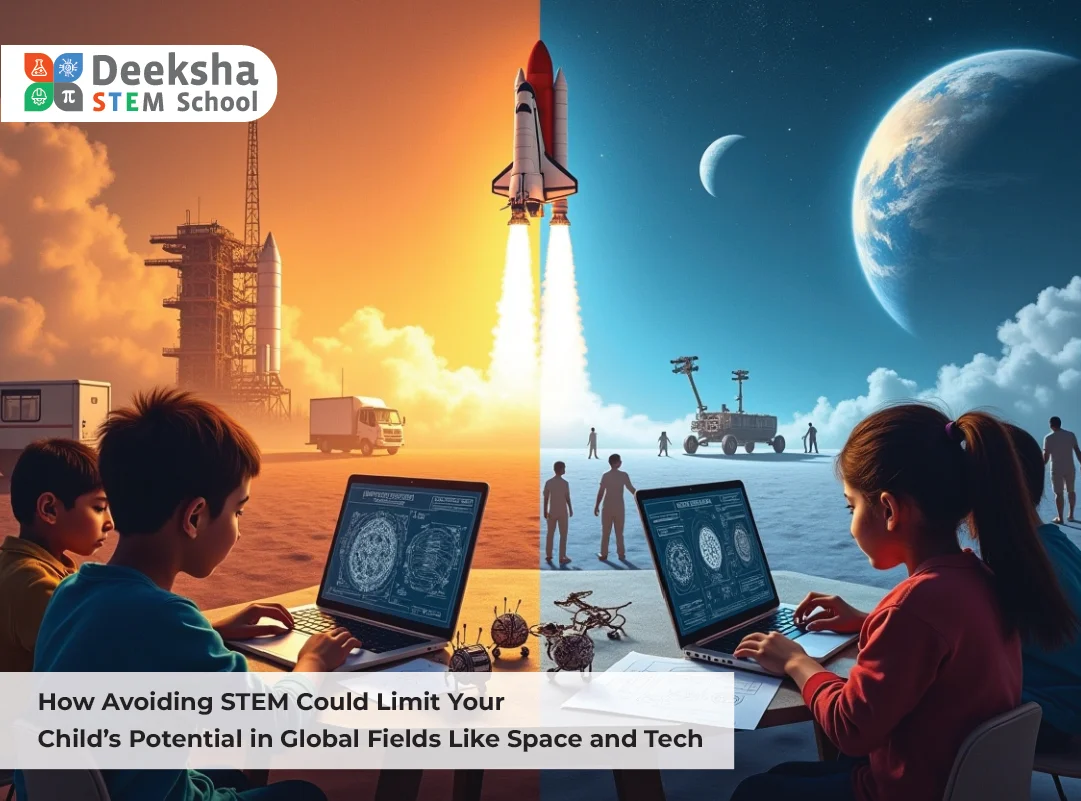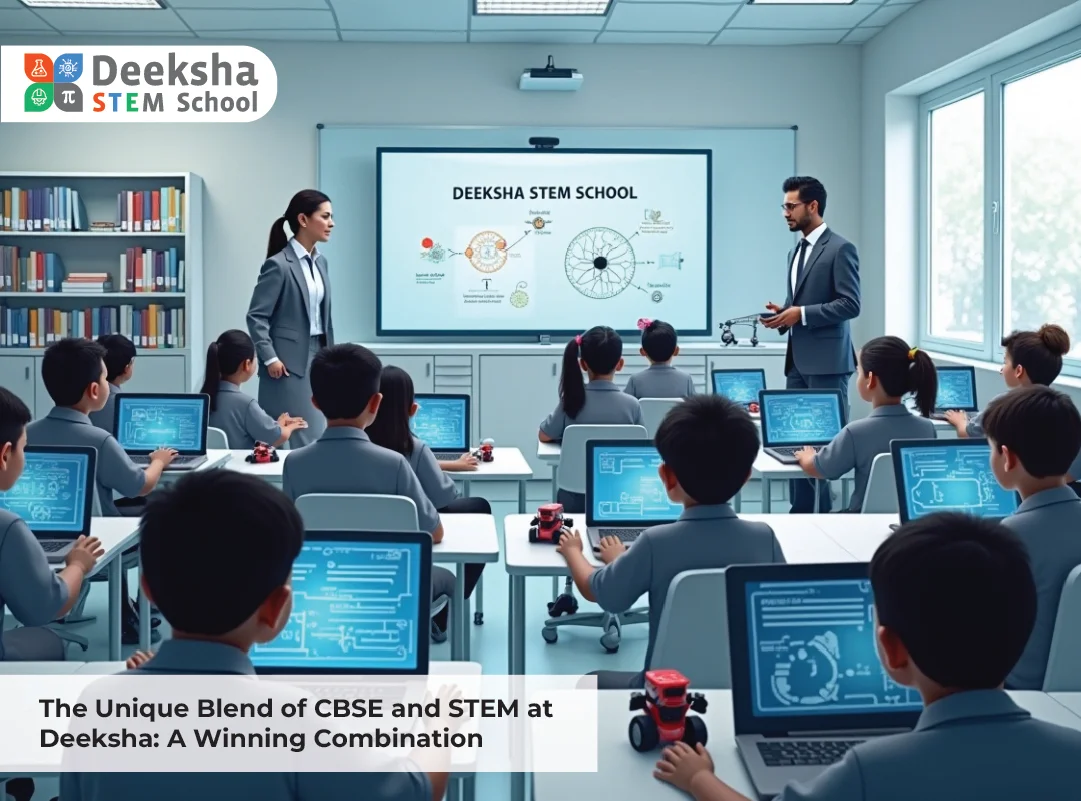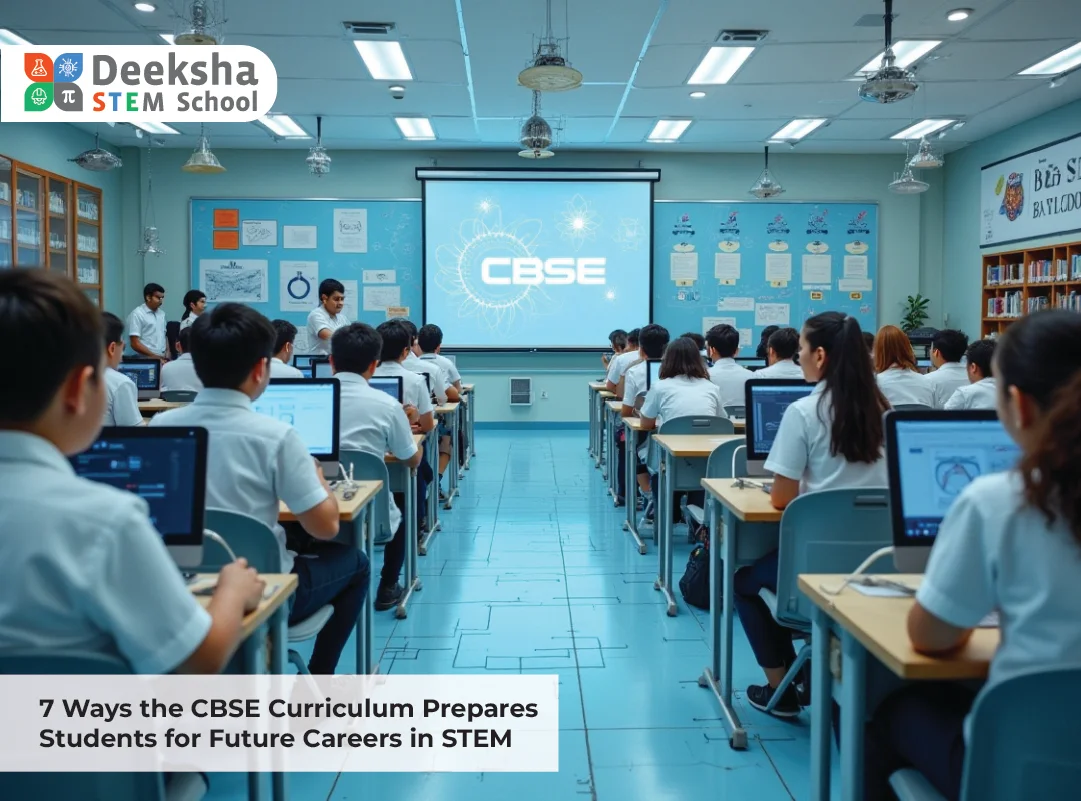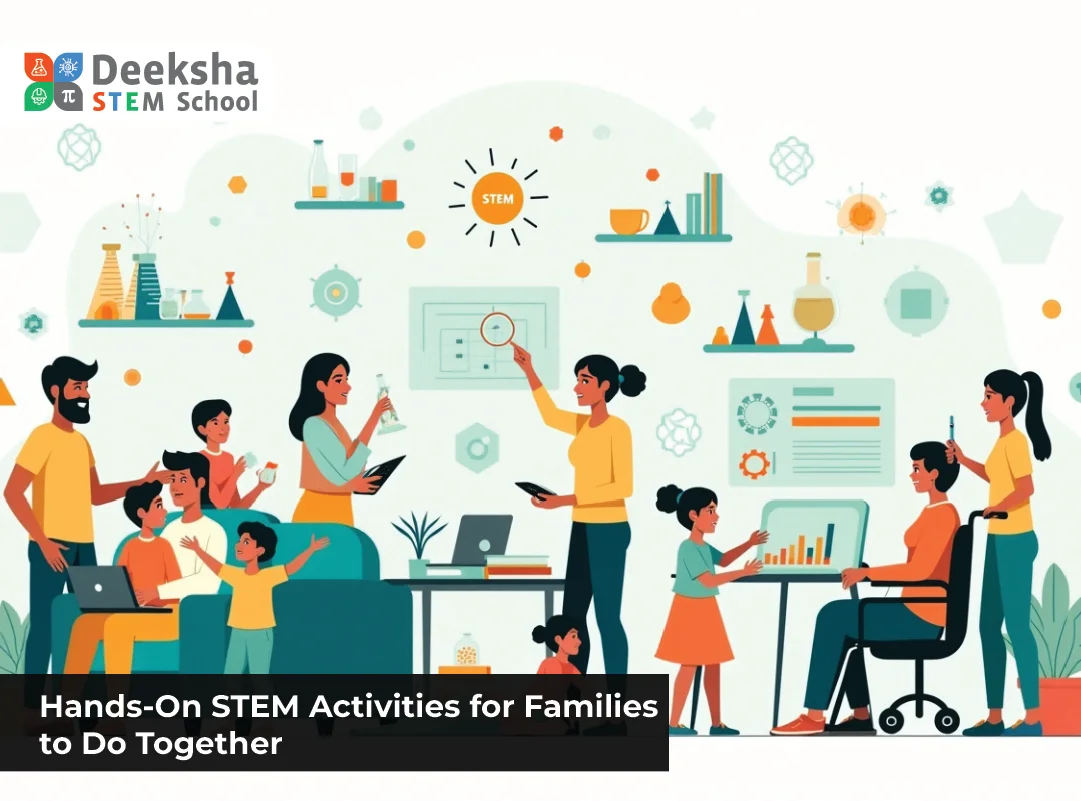How Avoiding STEM Could Limit Your Child’s Potential in Global Fields Like Space and Tech

In today’s rapidly evolving world, Science, Technology, Engineering, and Mathematics (STEM) play a crucial role in shaping the future. From space exploration to cutting-edge technological advancements, STEM fields offer endless opportunities for innovation and discovery. However, avoiding STEM education could significantly limit a child’s potential to participate in these global industries.
As the demand for skilled professionals in space research, artificial intelligence, and emerging technologies continues to grow, it is essential for students to be equipped with a strong foundation in STEM. Without this foundation, they may miss out on high-paying careers, groundbreaking innovations, and the opportunity to contribute to world-changing advancements.
The Growing Demand for STEM Professionals in Space and Technology
The global demand for STEM professionals is increasing at an unprecedented rate. According to reports from the World Economic Forum and NASA, industries such as aerospace, robotics, artificial intelligence, and software engineering require highly skilled individuals who can think critically and solve complex problems.
- Space Exploration: Organizations like NASA, ISRO, and SpaceX are constantly searching for young talent in aerospace engineering, astrophysics, and robotic technology. The space industry is growing, with missions to Mars, asteroid mining, and commercial space travel becoming a reality.
- Artificial Intelligence and Robotics: AI is transforming industries from healthcare to finance. Countries leading in AI innovation have strong STEM education systems that prepare students for the future.
- Cybersecurity and Data Science: The demand for professionals in cybersecurity and data analytics is increasing as technology becomes more integrated into daily life. Those without STEM skills may struggle to find opportunities in these fields.
The Role of STEM in Shaping Future Innovators
STEM education fosters creativity, analytical thinking, and problem-solving abilities—all essential for innovation. When students engage with STEM subjects, they develop the mindset needed to push the boundaries of what is possible.
- Critical Thinking and Problem-Solving: Engineering and coding challenges teach students how to think logically and develop solutions for real-world problems.
- Collaboration and Teamwork: Most STEM careers require collaboration, whether in designing spacecraft or developing new AI technologies.
- Adaptability and Resilience: In fields like space research, experiments often fail before succeeding. A STEM education encourages students to learn from failure and refine their approaches.
The Risk of Avoiding STEM Education
Without STEM exposure, students may miss out on essential skills that are becoming increasingly necessary in a technology-driven world. Here are some of the risks:
- Limited Career Opportunities: Many of the fastest-growing job sectors are in STEM fields. Without STEM skills, students may struggle to find competitive employment.
- Reduced Global Competitiveness: Countries investing heavily in STEM education are producing world-class scientists, engineers, and technologists. Students without STEM knowledge may fall behind their international peers.
- Lack of Problem-Solving Skills: STEM education teaches logical reasoning and creativity. Avoiding it could result in a lack of essential problem-solving abilities.
- Minimal Exposure to Emerging Technologies: The future will be driven by AI, robotics, and quantum computing. Students who avoid STEM may not be prepared for these advancements.
How Deeksha STEM Schools Prepare Students for Future Careers
At Deeksha STEM Schools, we believe in empowering students with the knowledge and skills necessary to thrive in space and technology careers. Our approach includes:
- Hands-on Learning: Students engage in robotics, AI programming, and practical science experiments.
- Advanced Curriculum: Integrating STEM with the CBSE curriculum ensures a balanced and comprehensive education.
- Industry Exposure: Partnerships with tech companies and research institutions provide real-world experience.
- Coding and Robotics Training: Preparing students for future roles in AI and automation.
- Critical Thinking Development: Encouraging innovation through project-based learning and problem-solving exercises.
Conclusion
Avoiding STEM education can significantly limit a child’s potential in global fields like space exploration and technology. As industries evolve and new technologies emerge, students must be equipped with STEM skills to remain competitive. By choosing a strong STEM-focused education, such as the one offered at Deeksha STEM Schools, students can open doors to exciting and impactful careers in the future. Investing in STEM today ensures that children are ready to become the next generation of innovators and leaders in the ever-expanding world of space and technology.




